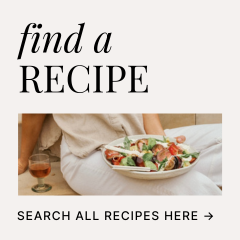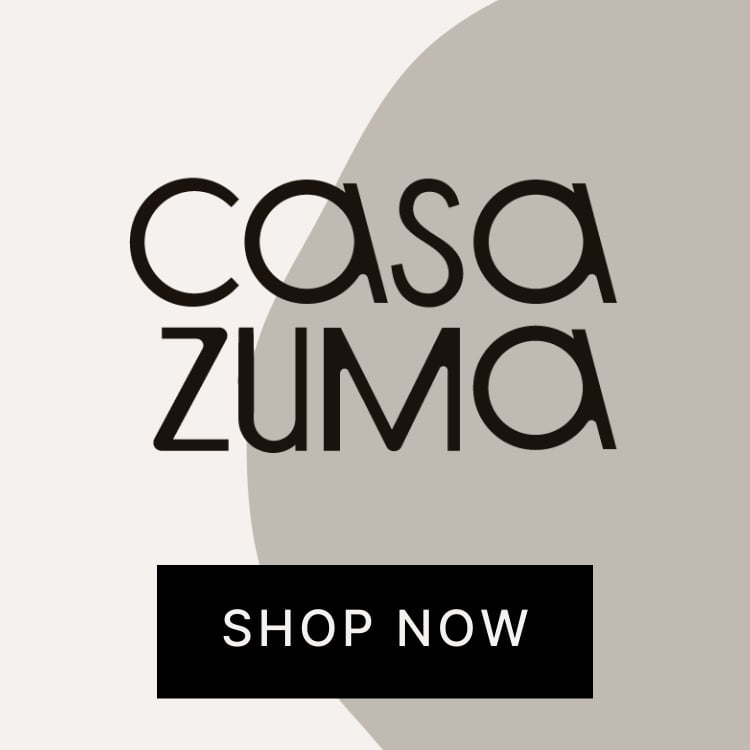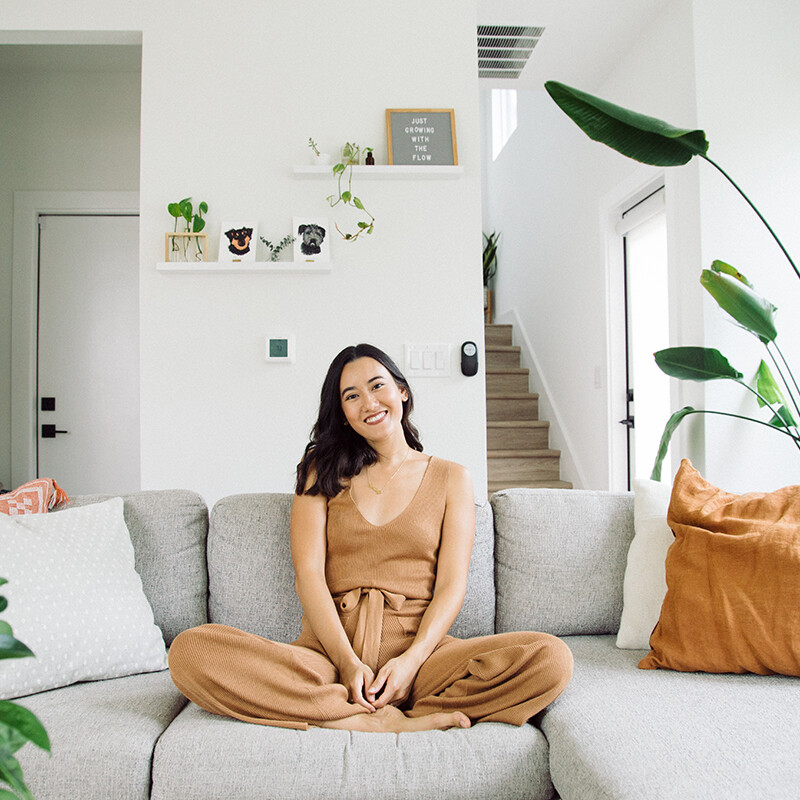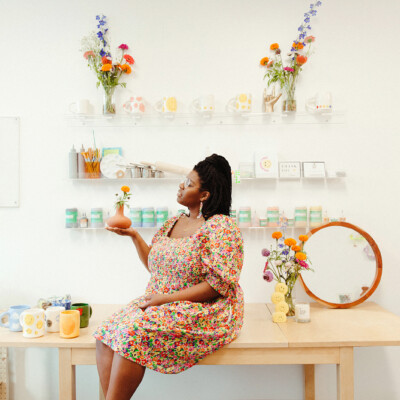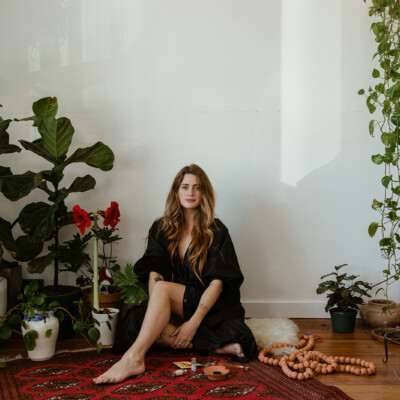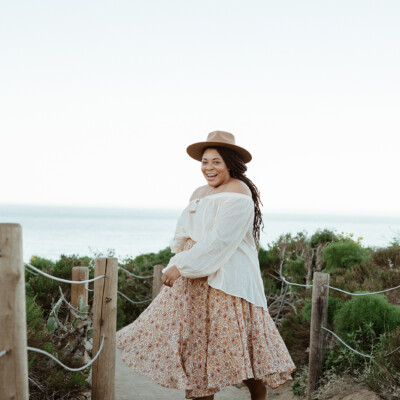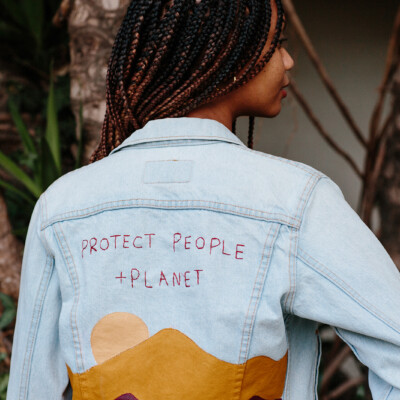Jules welcomed me into her light filled, East Austin dwelling like a warm, gentle breeze. Cheerful, charming and down to earth, whether surrounded by plants on her patio or sipping matcha in her kitchen, her presence made me feel like I was home. What I found so compelling about Jules was that though she finds home in the simple things (that aren’t things at all) – her loved ones, morning sunshine and writing–she has a talent in making an environment feel safe, sweet and essential through intentional living.
Jules Acree is a wellness writer, content creator, mindfulness teacher, loving wife, rescue dog mama and the founder of Om & the City and the Homebodies. She authentically embraces her passions through intentional living, mindfulness practices and a consistently nurtured habitat. Her ability to communicate healthy lifestyle tactics with imagery, video content and words is approachable and compelling. She has used her own life experiences as stories for societal change and connectivity.
At first I used writing to process what I was going through but then I discovered that other people were out there who had been there too. I found that many people struggled with similar issues and it just wasn’t talked about. The lack of discussion around mental health motivated me to start writing more.
Despite turmoil and discomfort, Jules remains joyful. She is one of those rare people on the internet who leaves you enlightened, excited for her next token of wisdom, whether it comes across in a playful 15 second clip or a deep, thoughtful essay. I feel so lucky to have shared in conversation with her on all things family, intersectional living, wellness, home organization and mental health. And I feel equally lucky to share her prolific words with you.
Read on for more on Jules’ story and to hear her voice visit the Woke Beauty Podcast.
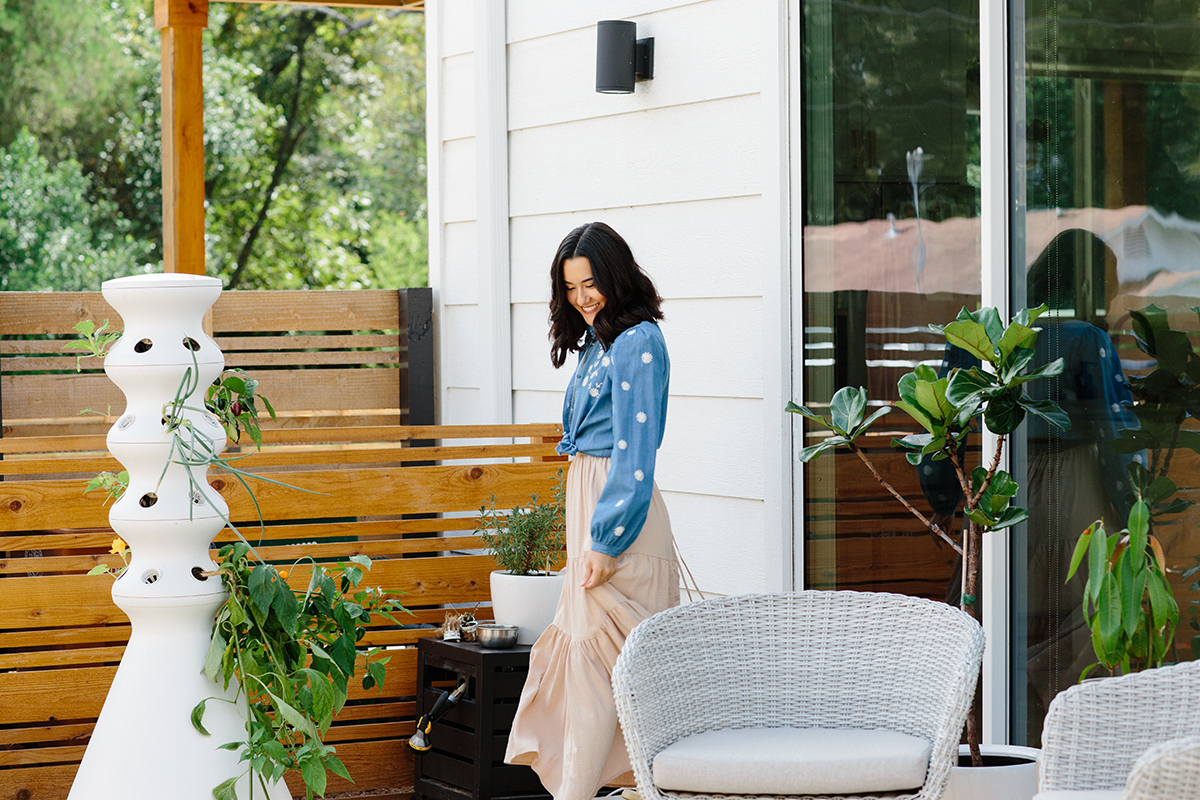
Where were you born and how do you identify with that place?
I was born in Louisville, Kentucky, and I don’t identify with that place. I actually haven’t spent much time in Louisville at all. I grew up in northern Kentucky, which is about 20 minutes south of Cincinnati. Right after I graduated high school, I went away for college to Kent State, near Cleveland. From there, I went off to New York. I really don’t feel like I identify with a place. I don’t feel loyal to any specific location because I always try to keep an open mind. I really believe that home is where the people are and as long as I have my dogs and my husband I really feel like I could be happy living in any place. Well, as long as it’s not frigid cold. I get seasonal depression so I really need sunshine. That was actually a big reason why I left New York.
Do you feel close to your family?
I’m close to my family. We have our differences. And this year, you know, I felt more of a split between us. But I still I love them, and we are close. And I talked to my mom every day, sometimes multiple times a day. And we just have a connection that I really can’t explain.
How do you navigate your difference in beliefs and ideologies?
It’s really tricky. I know that there are some things that my mom and I align on. When I hear us having intense conversations, and I hear us aligning on something, I try to dive deeper into that and show how one thing that we’re talking about might actually be connected to a whole other topic that we seem to disagree on. We’ve had really interesting and tough conversations this year and my mom listens to every podcast I’m on so… hey mom, love you.
I really appreciate that you have set intentional boundaries and that you work to foster your relationships.
I like to talk to people who have different views than me, because I really try to look at different angles. I don’t come at it trying to change people’s minds or tell them they’re wrong. I don’t want it to be such a polarizing thing. I also understand that this year there seem to be so many obvious standpoints.
But, the fact is, we are all so different and we have to embrace that. You can’t choose your family but your family is with you for life. I love my family and I respect them. I have to consider what is at stake and I have to determine what will serve us. Sometimes, having those conversations, where we’re all pretty set in our hardcore beliefs, isn’t the answer.
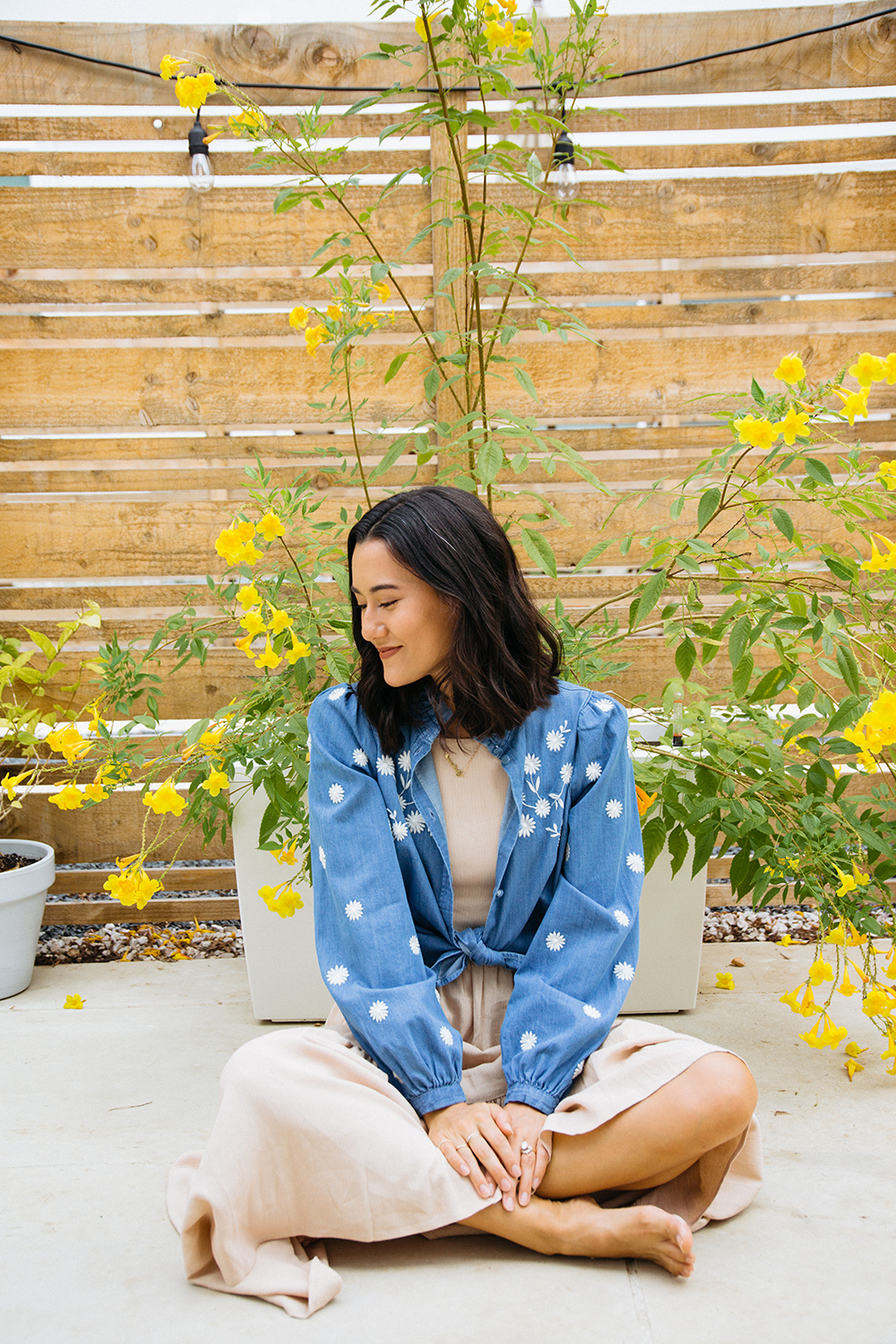
You’ve talked about your grandparents in such a sweet, deep way and I’d love to hear more about your relation to them and what they mean to you.
I’m very close to the Korean side of my family. Some of my best memories growing up were when we were all together. I have 12 cousins including my brother, and we’re not that far apart in age. Growing up, I wanted to be around my extended family all the time. Both of my grandparents passed away last year within 36 hours of each other. The last few months of their lives were really hard. They were both such incredible people. My grandpa was born in North Korea and he escaped as a kid, crossing the 38th parallel, to make his way to South Korea. My grandparents eventually went to UT in Austin and had 6 kids. They lived an amazing life.
I feel like I didn’t dive deep enough into my Korean side until I was older or I would be really selective with who I showed that side of myself to. When I went to Korea, all I wanted was to be fully Asian. I so often felt like an outsider because I was the only one who was half white. But, mostly in school, I just wanted to be white. I never felt like I was enough of either. It created an identity crisis and led to me pushing away my Korean roots. I really wish I had more deep conversations with my grandparents while they were still alive. But, I have my mother who is also missing them, and together we’ve bonded so much over Korean dramas this year. It’s our outlet for this dumpster fire of a year but it’s also a way for us to have conversations around our culture.
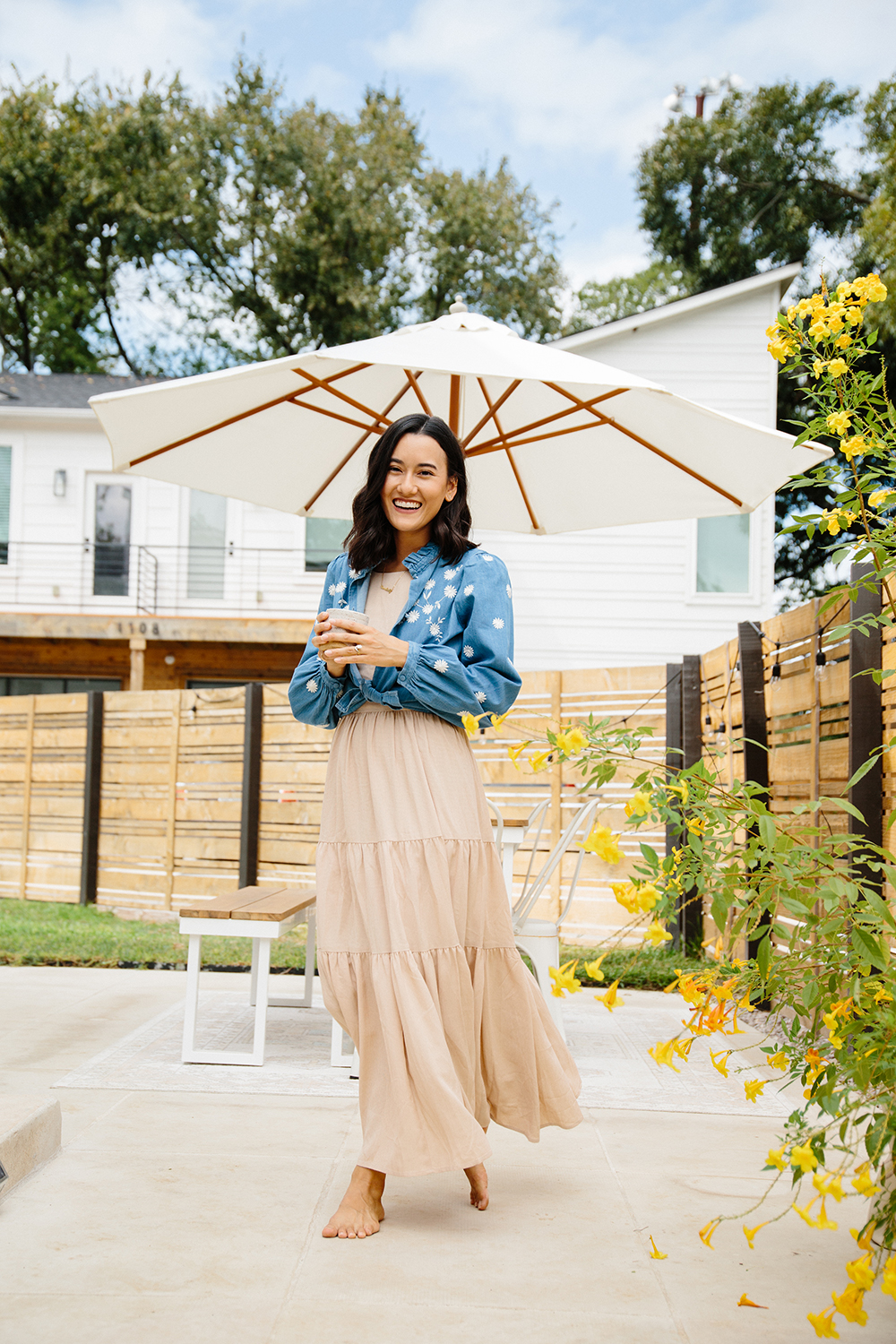
How have you created intersectionality in your life?
My journey started with mental health. I overcame an eating disorder and struggled with depression and anxiety (those two like to stick together). Part of my coping mechanism was to write, and that’s how I’ve always expressed myself. In fact, Om and the City was not my first blog. I’ve had a lot of different outlets, Tumblr included. At first, I used writing to process what I was going through, but then I discovered that other people were out there who had been there too. I found that many people struggled with similar issues and it just wasn’t talked about.
What motivated you to start a wellness blog, and how did you use your strengths?
The lack of discussion around mental health motivated me to start writing more. But I’ve now evolved to the point where I’m not defined by depression or the eating disorder I had. That might be the origin story, but it’s not where I connect myself to now. It feels really good. I’ve truly overcome that phase of life and grown from it. It’s made me more empathetic and open to other people and their emotions. And I actually think that’s my strength. I’m really good at gauging the energy of those around me and matching it. Using your past struggles as information to gain better insight into yourself is so important.
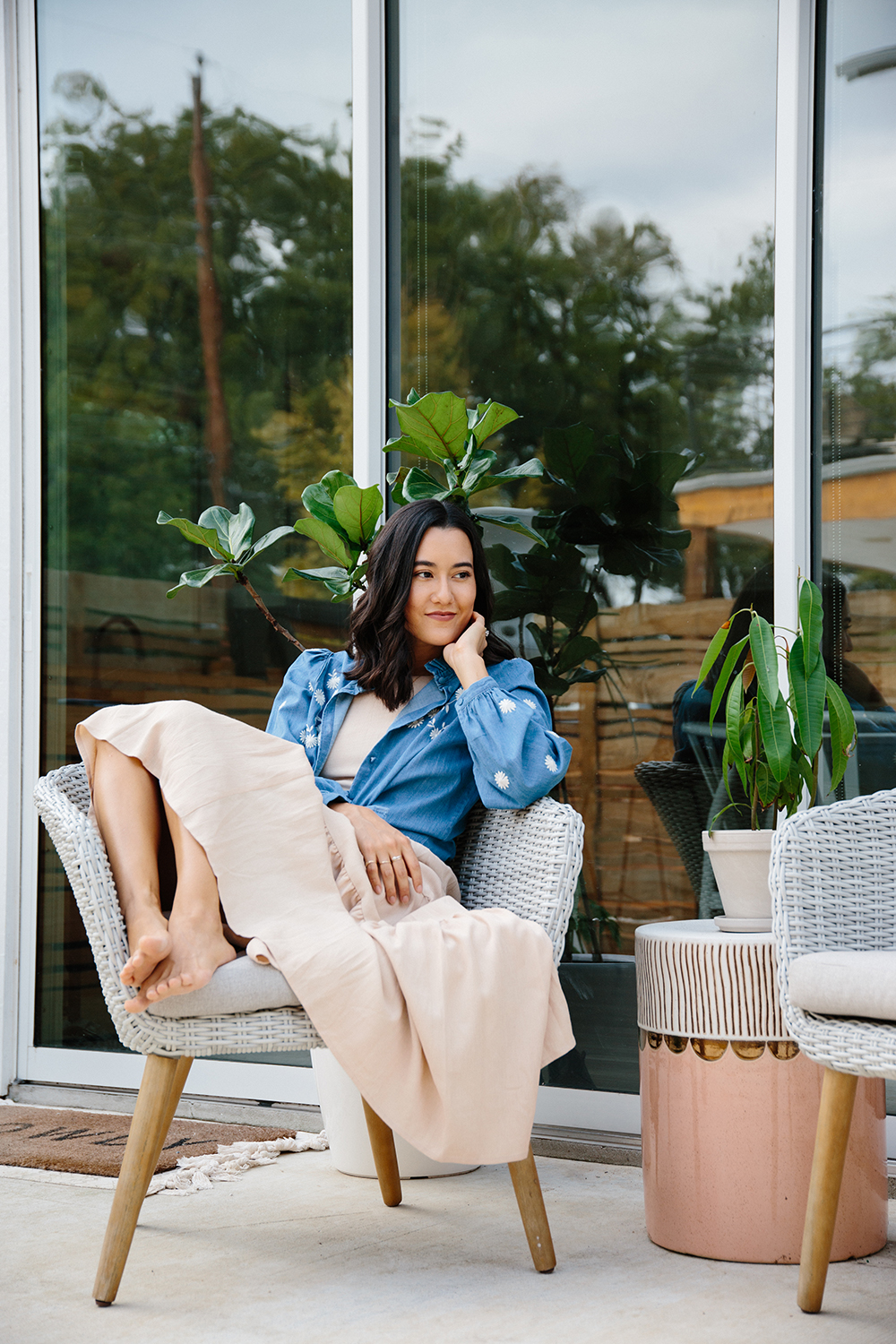
Do you ever feel bouts of depression or anxiety now? What do you do in response?
I haven’t been diagnosed with depression, however, I feel like I am more prone to feeling depressed. Things affect me deeply. I think it’s important to recognize that we don’t have to be happy all of the time. Ultimately, I keep up with my mindfulness practice. I really set boundaries when it comes to technology usage and the clutter in my home. When my space, my calendar and my management around inbound versus outbound is clear, I feel like I have space to breathe. It’s been an especially tough year but I have tools in my toolbox to better respond to tough situations versus react.
What does your practice consist of?
It starts with mindset. Your mind is such a powerful thing. I have a regular meditation practice. I would say it keeps me centered but the thing is, we’re not always static. We’re constantly changing and ebbing and flowing in our emotions. But what I mean is, for example, when I wake up, the first thing I think of is: How do I feel today? I take this mental and physical scan of how I’m feeling. I think, we have to approach every day as a blank slate or a new lens instead of pushing ourselves in a stiff order. We simply don’t wake up with the same amount of energy or focus every day. We have to adjust how we approach ourselves given the answers that we receive from our bodies and minds. I honor my needs based off of those responses.
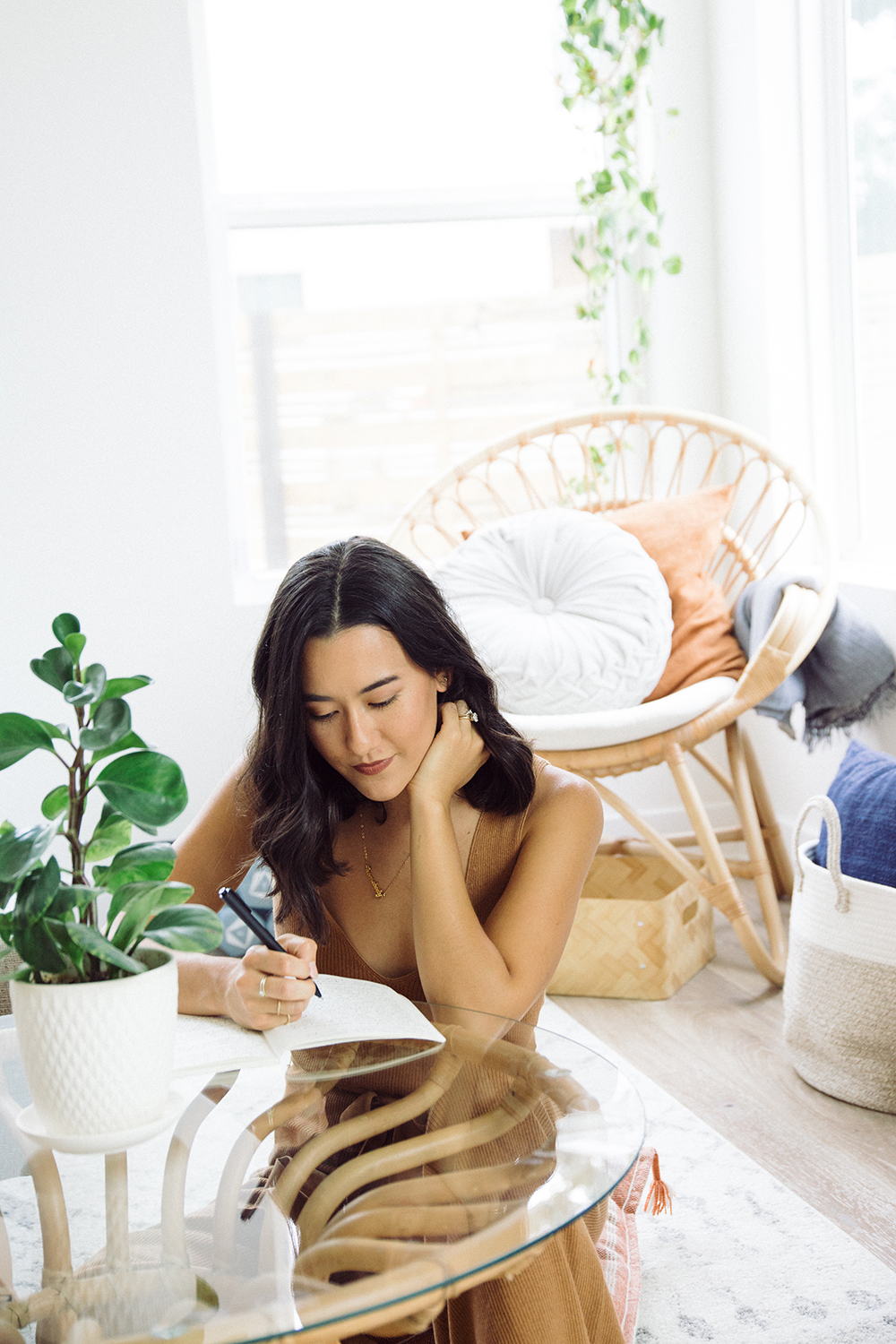
Could you share some tools that help you stay mindful?
There are easy, tangible things that you can incorporate into your everyday life. My first piece of advice is to not sleep with your phone on your bed stand. Because, of course, if you sleep with your phone charging by your bed, you’re going to reach for it. Unless I have to go out of my way, get up, grab it and then go back to bed, I’m not going to look at it. If you start charging your phone away from your bed, you’re going to be able to start your day off on a better, more positive note. That one positive action will help lead to another positive action. It sets your day up for success.
So, instead of reaching for your phone, what do you do?
After I’ve scanned my emotional and physical state, I drink a giant glass of water that I always have by my bed. Then, I go through my morning routine. I’ve found that I really need structure because I’m naturally a free spirit. There’s a way to find structure and then flow within that structure that you build and create. I really like to go outside first thing in the morning and get the sunlight into my eyes. It just helps me wake up and it’s great for your circadian rhythm. It doesn’t have to be a 10 step long routine and it doesn’t have to be the same everyday. One of the best approaches I’ve found is to make a list of themes that make you feel good (moving, turning inward, journaling, meditating or spending time in nature) and then pick, change things up and see what works for you.
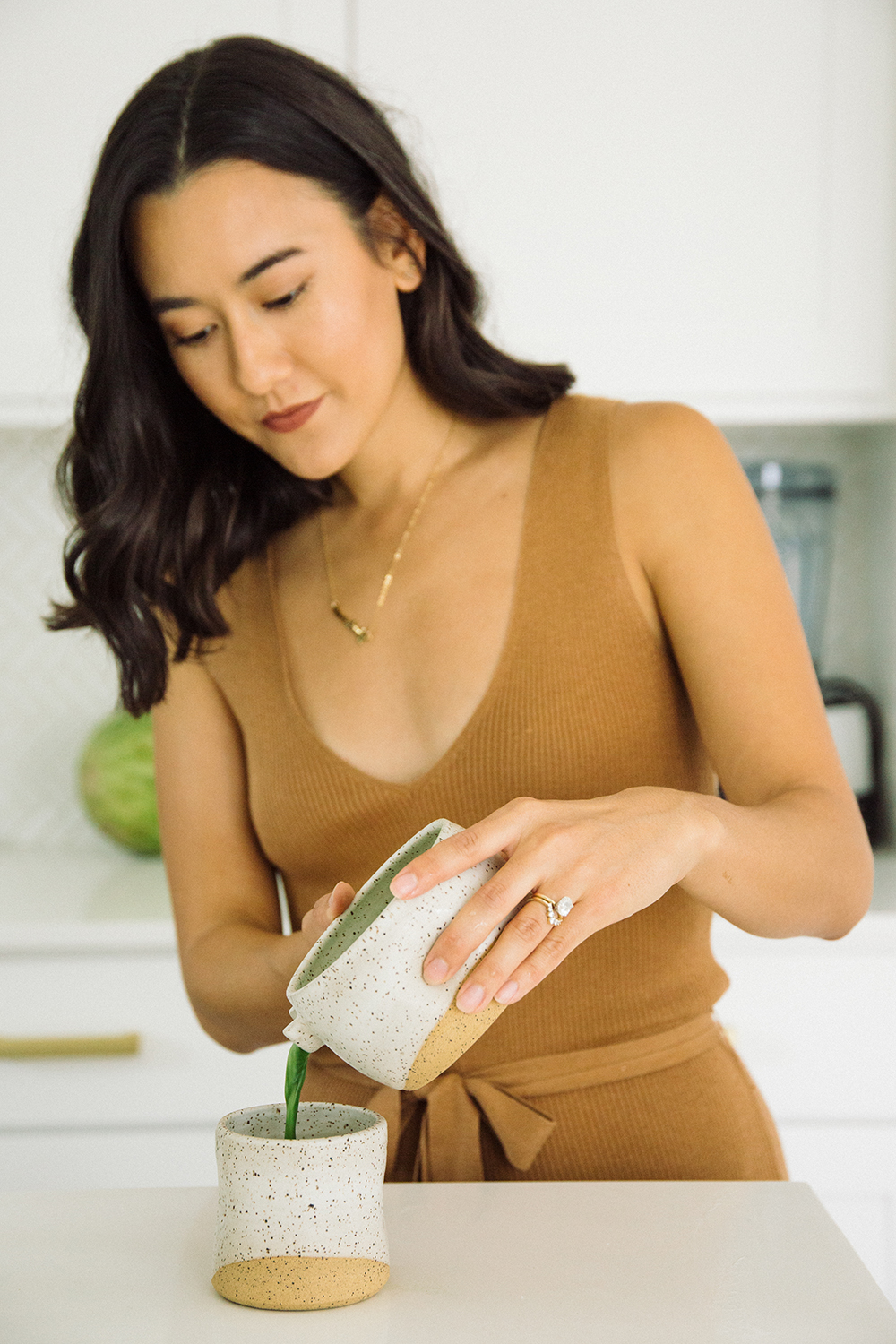
How do you manage all of this with social media? You’ve defined mindfulness really well and I feel like it can be really hard to be mindful while utilizing social media. You’re projecting and consuming in tandem and it’s overwhelming. You’re so present on social media and you do such a great job to serve your audience. I know that takes a lot of energy. You have a great relationship with technology and a really good outlook.
If you were to look at my Instagram, it might seem joyful. I do my best to balance it out but I also believe that technology is not the best place to go when you’re feeling bad. It’s important to go inward. Social media is such a tiny fraction of our full lives and no one is obligated to let others in on their emotions. It’s up to that person to be the gatekeeper of what they share and what they keep private. It’s a balance though because transparency around hardships allows all of us to feel connected.
I don’t necessarily have a schedule but I do my best to follow a system. If I’m posting something in the morning, then after I post it I’ll be on my phone for the next 20 or so minutes, responding to DMs, commenting back to people, engaging with the community and supporting other people that I follow. I try to keep it to a 20 minute time block because while it’s important to set boundaries, I’m also really grateful for the community I’ve built. The last thing I want to is to neglect that.
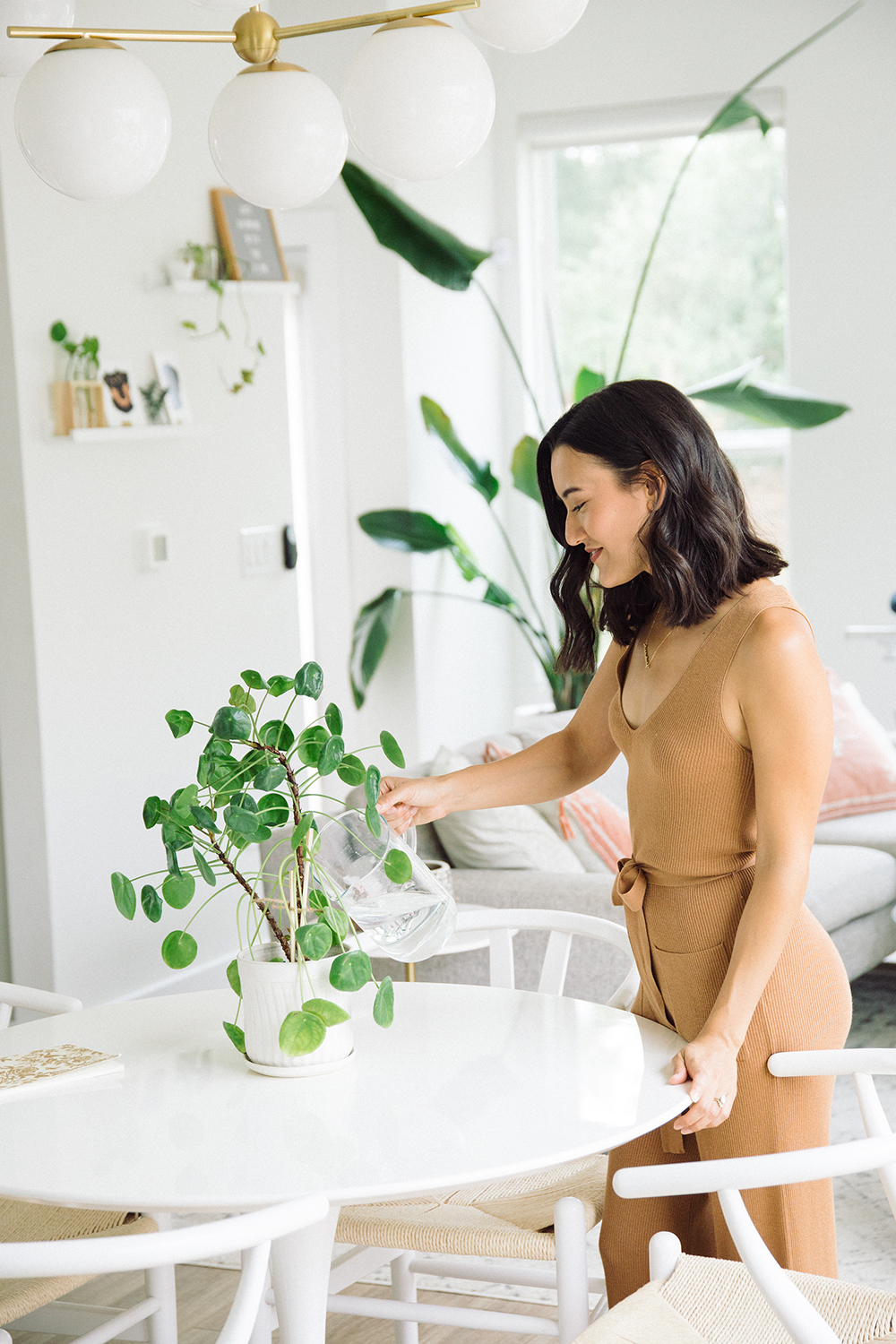
I want to know how you’ve created structure and organization within your home. I’ve heard you talk about how it’s all about a little bit at a time. And I’d love to hear more about your general philosophy around making your home a beautiful space and keeping it that way.
It’s one of those things that doesn’t happen overnight. I used to be attached to everything and therefore I would keep every single momento. I had a hard time of letting go of anything. I attached so many memories and emotions to things but ultimately all of that clutter gave me anxiety. The less stuff you have, the easier it is to put those things away and clean up quicker. So while my house does get messy and out of place, I feel like it’s really quick to clean up because I know where everything goes, and if it doesn’t have a home, then it maybe shouldn’t even be in my home in the first place. You have to be really intentional about what you allow into your space. It starts with a drastic mentality shift.
If you want to ease into it, you might consider putting a basket in every room. And then, as you go about your week, drop things into that basket that you don’t think you need. Not all of us have the time to overhaul the whole house for a couple of days. But it doesn’t have to be that way. Once you clear the initial clutter, you’re able to more easily access the things that you use on a daily basis. You won’t have to spend so much time looking for that thing that’s lost at the bottom of whatever right corner of your closet. And so now you have more brain space to be able to do other things.
Mindful purchasing is really important too. With kitchen appliances, for example, I like to buy items that serve multiple purposes (an instant pot instead of a rice cooker) so that it takes up less space. It’s the same with clothing. Fashion is cool but for most of my wardrobe, I try to buy things that can be mixed and matched in different ways.
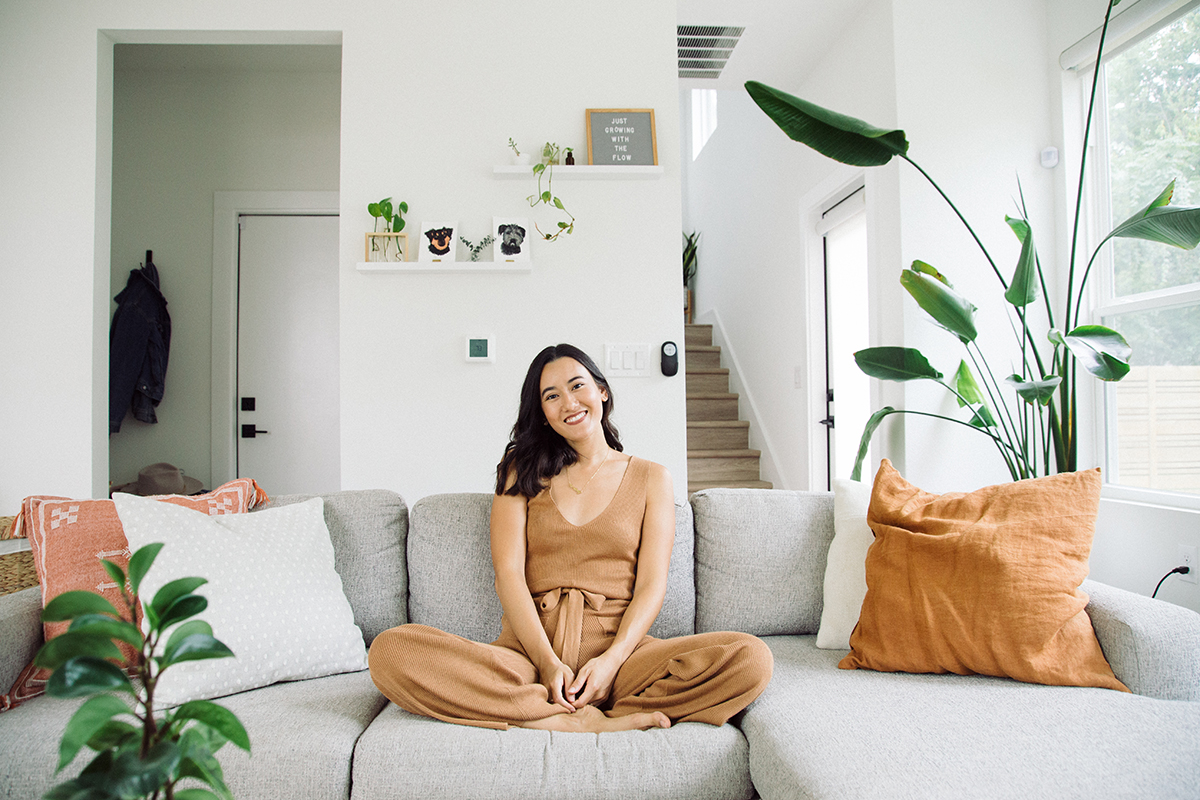
When it comes to your identity as a working woman: can you describe what it is you do in your own words and what it is that you love about what you do?
I consider myself a wellness writer and entrepreneur. I’m working on three different business right now. The overall theme of what I love to do is to bring more mindfulness to a space and to help people live more intentionally. I’m a laid back, down to earth kind of girl and so my approach is a down to earth view of well being. We are the experts of our own lives. I try to share things that are working for me but I strive to leave that open-ended and to remind people that they are individuals and they have to figure out what works for them. I’m offering tools from my own toolbox but it’s up to you to decide how you want to live. In a nutshell, I’m very passionate about intentional living.
How have you curated your own, personal brand aesthetic?
It’s a constant work in progress and it’s something that you get better with just by doing. When you stop overthinking things and waiting for everything to be perfect–that’s when the magic happens. We can stop ourselves and talk ourselves out of doing so many things because we’re just waiting for our ducks to be in a row. But I fully believe in just jumping and letting the parachute just kind of appear because, you’re never going to be completely ready for anything. You just have to go for it and tumble through and make mistakes. A lot of people like to wait for the perfect brand name and the perfect brand colors but I think the best thing to do is to get your message out there. The value lies in your story. Everything else will naturally build around you.
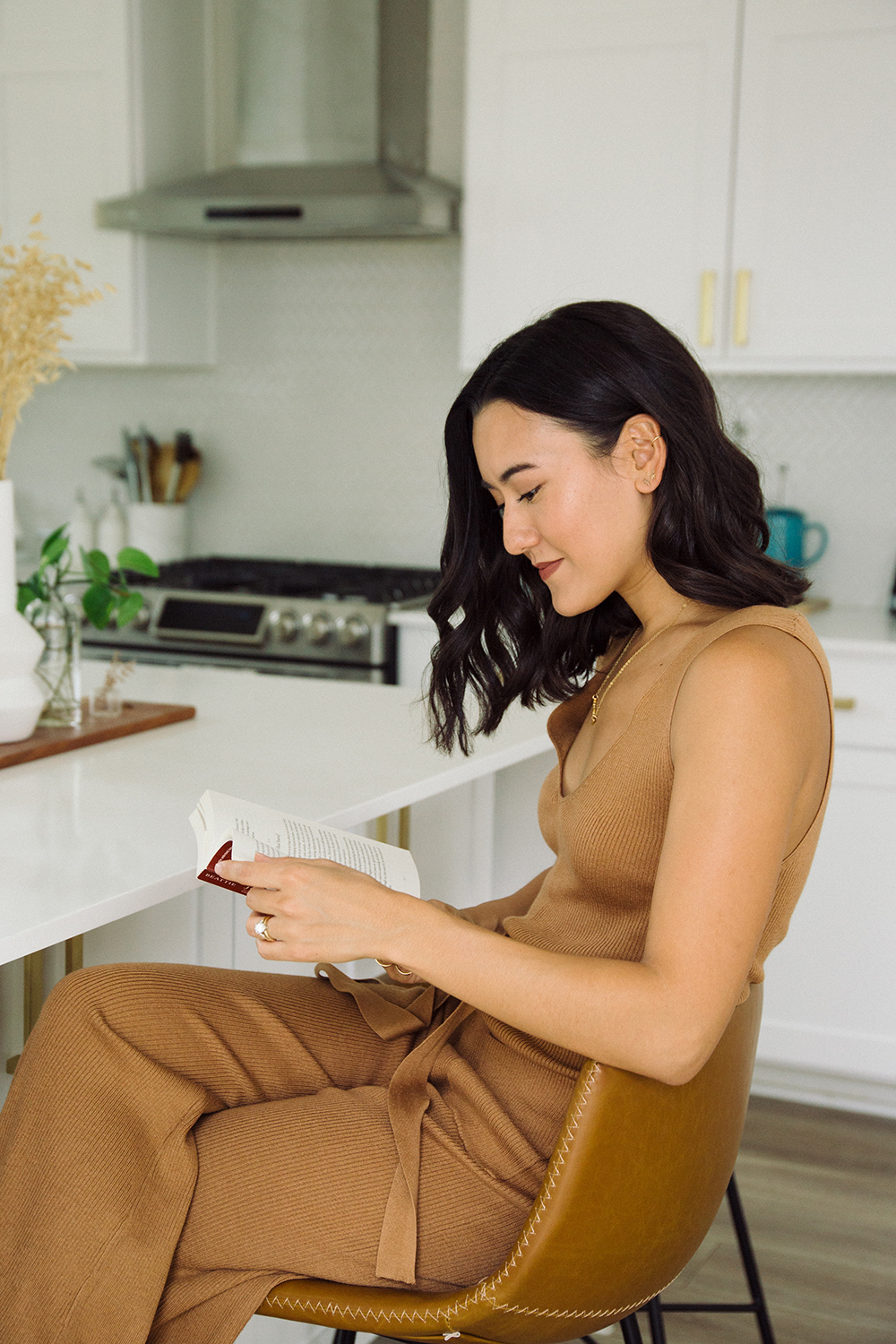
Do you have a most gifted or most recommended book?
The book I keep coming back to is Essentialism by Greg McKeown. It’s a really short read with great nuggets that you can apply to your life and adapt to what feels right for you. My friend, Robin Conley, just launched her new book, The Feel Good Effect, and she’s all about attainable wellness and ditching the all or nothing mentality–very in line with my philosophy and you know, shameless plug.
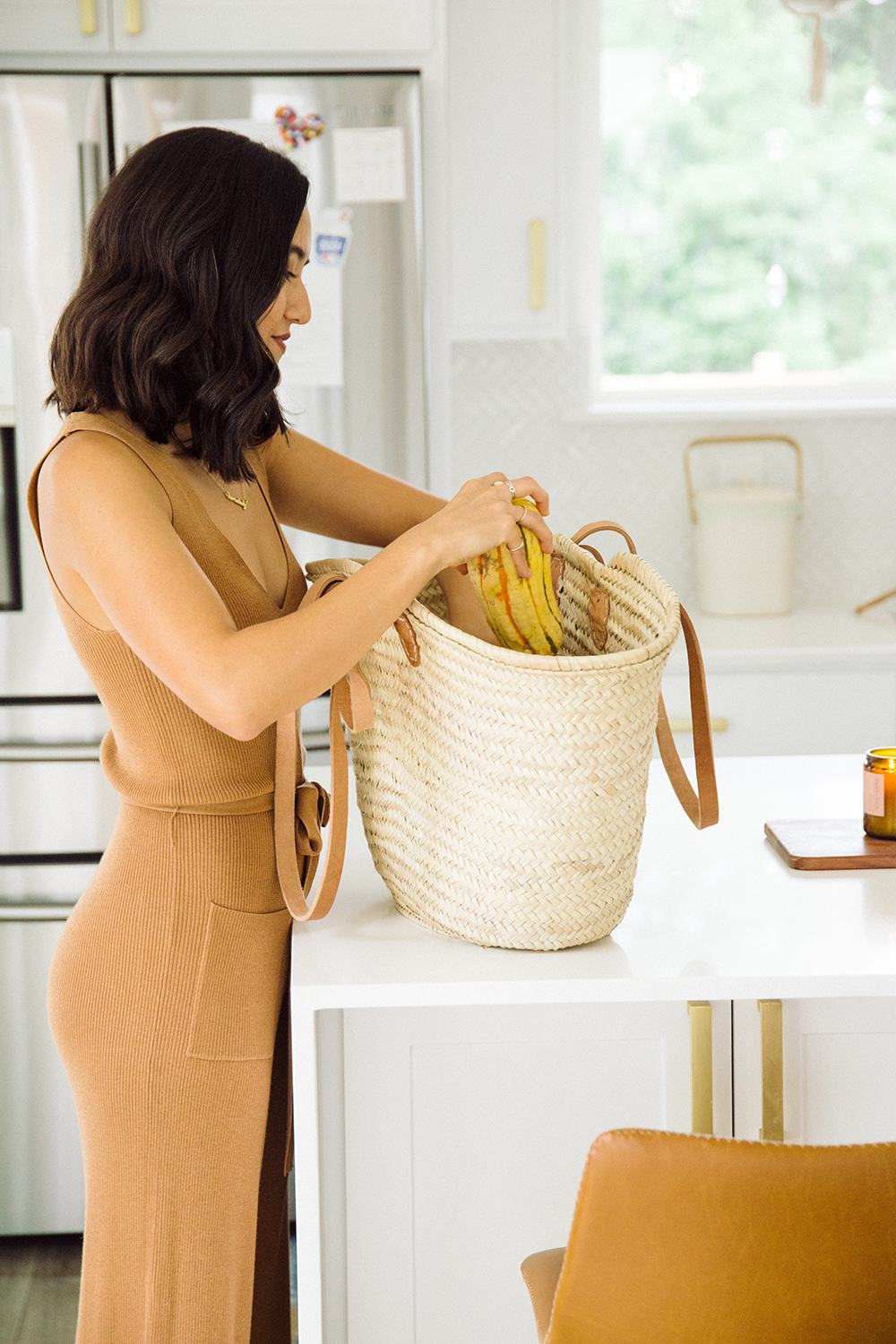
If you could talk to younger Jules – Jules, 10 years ago – what piece of advice would you give her?
I would tell her to trust the process and enjoy. I feel like so much of my past was me looking forward and wanting to know what’s coming. Moving to Austin really taught me that I don’t always need to know what’s happening next. I can really settle into moments of calm and peace and remind myself that everything will be ok. I know that I could have enjoyed certain areas of my life a little bit more had I not been so worried about what was coming next. It’s important to let those good moments really sink in because there are so many times when it pours. It can feel like one bad thing after the next; yet, so many great things happen in life and we have to give those things just as much weight–if not more.
